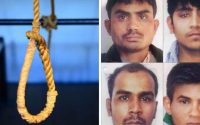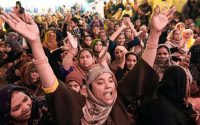Anti-torture advocates ask Supreme Court to nullify anti-terror law
Source:-gmanetwork
Anti-torture advocates and families of victims of enforced disappearances have joined calls for the Supreme Court to strike down several provisions of the Anti-Terrorism Act (ATA) of 2020, saying that the law is “reminiscent of the dictatorship of Marcos.
Women and child rights groups are also among the newest petitioners against the heavily challenged law, which its critics say could violate basic rights and hurt legitimate dissent and advocacy.
The United Against Torture Coalition, a network of various human rights groups and individuals working on torture prevention in the Philippines, alleged that many of the main provisions of the anti-terror law contravene the 1987 Constitution and the anti-torture law.
For one, the petitioners questioned the ATA’s provision on the detention of suspected terrorists for up to 24 days before they have to be charged in court, claiming that this is “conducive” to torture, coercion into an involuntary confession, forced disappearance, or even a summary execution.
“Considering the widespread use of torture in counter-terrorism, the prolonged detention authorized under the ATA is unjustified and unsubstantiated,” they said.
They said the detention period provided by the law is much longer than the three-day detention period allowed by the Constitution even in times when the privilege of the writ of habeas corpus is suspended.
The petitioners also objected to what they said was the law’s “vague, amorphous and overbroad” definition of terrorism and its related crimes.
“Over-all, the lack of fundamental fairness and safeguards, taking into consideration the totality of the intersecting provisions of ATA, indicate a strong clear and present danger of widespread torture and ill-treatment of suspects under the prolonged custody of law enforcement authorities,” they said.
This is officially the 31st petition against the anti-terrorism law, according to SC records. Two other petitions filed via registered mail have yet to be included in the list.
The new petitioners join a wide array of sectors that have contested the controversial law, ranging from retired justices, lawmakers, framers of the 1987 Constitution, lawyers, human rights advocates, and educators, to labor groups, youth leaders, journalists, and artists.
They filed the petition amid moves by lawmakers to declare September 11 as a non-working holiday in Ilocos Norte to mark the birth anniversary of former president Ferdinand Marcos, who was born and raised in the province.
Marcos’ administration was marked by corruption and human rights violations.



